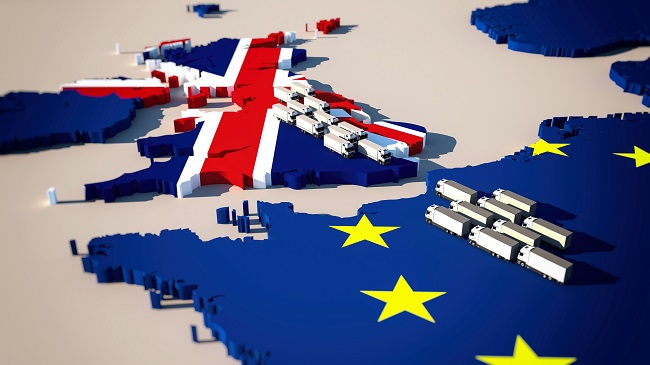
As businesses get back up to speed after the holiday period, many must now adjust to a new border regime, with goods coming into GB from the EU subject to new rules since 1 January 2022.
But what impact have these new rules had on UK-EU trade so far?
The IOE&IT Daily Update here explains what the new rules are and looks at the early reporting in the media about their impact.
What are the new rules?
Import declarations
British importers must now ensure import declarations are completed for EU goods at the point they enter the country.
They could previously delay submitting declarations for up to 175 days after the goods entered Britain.
SPS rules
Firms importing goods subject to sanitary or phytosanitary (SPS) controls must also submit pre-notifications about their goods movements to the Animal and Plant Health Agency (APHA) or DEFRA, using IPAFFS (the import of products, animals, food and feed system).
Further rules for SPS goods – including the completion of export health or phytosanitary certificates – are being introduced in phases from 1 July.
GVMS
The government’s new Goods Vehicle Movement Service (GVMS) also became operational for goods moving between the EU and GB on 1 January 2022.
Using GVMS is mandatory for hauliers carrying imported goods to GB ports that are adopting a ‘pre-lodgement’ model rather than a 'temporary storage' approach.
It can also now be used for pre-submitting export declarations for goods entering the EU. However, there is variance as to whether goods headed for the EU can be submitted as 'arrived' or 'pre-lodged'.
You can read more about which ports are using GVMS here and about further HMRC guidance on using GVMS for exports here.
Ports deploy additional staff
Thousands of extra staff are being deployed at GB ports to deal with expected disruption, reports the Telegraph.
The Home Office has recruited 2,000 extra Border Force staff to cope with import controls and HMRC has also brought in more staff to handle the workload brought about by the new changes.
Richard Ballantyne, head of the British Ports Association, said ports and shipping firms were also putting up more people.
“I have to stress we are definitely concerned there could be some non-compliance. It’s just the level of how severe that is, and how much physical congestion is. I think it remains to be seen,” he said.
Supply disruption and price rises
The British Frozen Food Federation has told Sky News that January could be “fraught” as companies wrestle with the new rules.
“We are concerned that not enough planning has been done to ensure the new requirements are understood by everyone in the food supply chain,” said chief executive Richard Harrow.
The Federation of Small Businesses has also told the Guardian that specialist small retailers, such as delis, were particularly worried by the changes.
James Sibley, the federation’s head of international affairs, added that some EU exporters were not prepared, with many having not yet obtained their EORI numbers – a requirement for the completion of customs declarations.
Simon Sutcliffe, a partner at tax and advisory firm Blick Rothenberg, also predicted to iNews that higher costs for importers would be passed on in price rises to consumers.
Not worth the hassle?
Former permanent secretary at the Department for Exiting the European Union (DExEU), Philip Rycroft, has said that some British firms will give up on importing because of the additional administrative burden.
City AM reports Rycroft telling BBC Radio 4’s ‘PM’ programme that there is a likelihood of “teething problems” following the introduction of the new rules and that some companies could give up on importing because these would prove to be “too much hassle”.
“Businesses exporting to the EU from the UK have already faced these rules, obviously, for the best part of a year,” he said. “So, it’s now going to be those businesses in the UK that import from the EU (that) have got to deal with this, essentially, new Brexit bureaucracy.”
According to the Telegraph, Rycroft said stricter country of origin requirements have become “really complicated” for products that “contain lots of different bits or ingredients”.
Slow ramp up
However, border checks are expected to be minimal to be begin with, at least until further rules and checks are introduced from the beginning of July, according to the Independent.
In July, SPS checks will begin for high-risk animal-by products, regulated plants and plant products, meats and meat products, and high-risk foods not of animal origin.
Border Operating Model: practical help
For more in-depth guidance on the practical application of the Border Operating Model, the IOE&IT’s BOM Suite of six courses covers key GB-EU trade topics – see here.
Join the IOE&IT and get up to 40% discount on these courses and consultancy – for more information see here.


